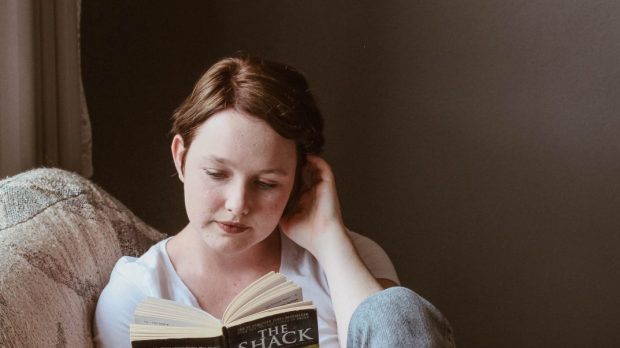I think I’ve read The Little Prince about 30 times. Doing the math, I figure I’ve read it to each of my six children about five times each. I happen to love the book and don’t mind re-reads, but my children far outpace me in their appetite to hear the same story over and over … and over.
I’ve been told that there are valid developmental reasons that explain why kids make us re-read the same story so much, such as vocabulary building, comprehension, and fluency. This is why, like a good father, I consent to re-read stories to the kids, even if reading Green Eggs and Ham for the 100th time has me almost crying. A few months ago, though, I began to wonder if any of the same benefits might accrue to an adult who reads the same book again and again.
I know a lot of people regularly re-read books. Until recently — children’s books not withstanding — I wasn’t one of them. In my opinion, there are so many good books in the world to be read. I’ve read many great ones, but there are so many more I haven’t read yet and am desperate to check out — in fact, I was just looking at my amazon.com wishlist and sighing – so I’ve always felt an obligation to read as much new material as I could. I want to know and learn everything, and if someone references how good a book is and I haven’t read it yet, I burn with jealousy.
When I was younger I would stay up until all hours of night reading intense, difficult Russian novels and volumes of French philosophy. In the foolishness of youth, I thought this kind of reading was fun. I’ve slowed down quite a bit in my middle age and no longer tackle intimidating, dense works of philosophy, but some of that passion to continue absorbing more books into my personal library has remained. I literally, just now, toggled back over to my online wishlist and purchased seven new books.
In college, my philosophy teacher said that once every 10 years a person should re-read the same book. It’s a way of measuring how you’ve changed and matured over that period of time. He said that he re-reads Aristotle’s Nichomachean Ethics. He’s obviously much smarter than me – struggling to read that book once is enough as far as I’m concerned — but over the last few months I’ve begun to take his advice and re-read books for the first time. I think he’s right; reading a book again after a period of many years is a rewarding experience.
I recently re-tackled Joseph Heller’s Catch-22. It’s even better than I remembered it. The second time through, more of the jokes made me laugh and when the novel got dark, it made me more sad. I suppose as an older man I am both more ready to laugh than I used to be, and I am also more empathetic to how difficult life can be.
I also re-read Kurt Vonnegut’s Timequake. It really threw me for a loop and I was far more affected this time by Vonnegut’s ruminations on death and his second-guessing of past decisions.
I also re-read John Gardner’s Grendel. When I was younger, I remember reveling in the existential rebelliousness of it. A second read impressed me far more as an examination of the power of art and beauty.
What’s fascinating is that every book I’ve re-read has been a totally different experience than when I first read it. The words, obviously, haven’t changed, and I have to admit I don’t know that I’ve experienced any vocabulary-building benefits the way a child might, but I definitely notice a difference in my comprehension of the story. The only possible reason for the difference is that it is I who have changed, and I’ve been thinking a lot about how I’ve changed and why. Has it been positive or negative? This is, to me, the main benefit of re-reading. Suddenly, I’m being challenged to contemplate my life, who I am and where I’m heading.
I’ve realized that my obsession with only reading new books is possessive, as if I am trying to own the knowledge or display my rows of conquered books as a sign of my intellect. Re-reading avoids this problem. When I read the same book again, I’m doing it simply for the joy of reading that particular book. The second time through offers the breathing space to get the most out of the experience.
A book is like a mirror. It not only challenges us with new information but also reflects back to us an image of ourselves. Over time the face in that mirror changes. I want to be sure I like what I see, which is why I plan to keep re-reading.

Read more:
5 Books you may not have read in high school but still should

Read more:
How many books is too many?

